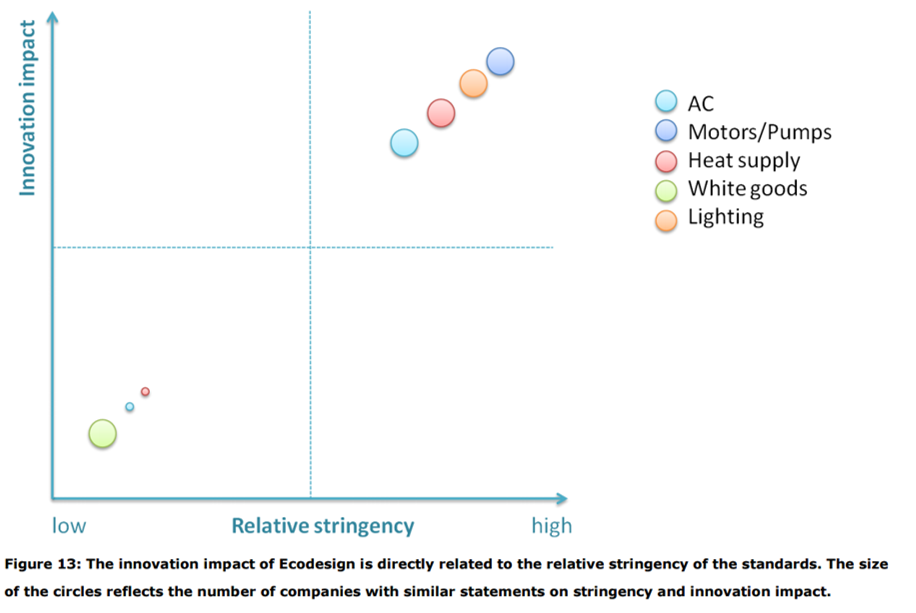- Client: European Commission - DG Energy
- Implementation period: June, 2013 - April, 2014 (Completed)
- Geographic coverage: European Union
- Theme: Energy
- Topic:
- Experts: Jessica Yearwood Travezán, Rob Williams
Do eco-design and energy labelling regulations impact industry’s innovation process?
The Ecodesign and Labelling directives have the potential to not only deliver energy savings but also to positively impact the innovation activities and competitiveness of the manufacturers of the regulated products. In view of the 2014 revision of the directives, this assignment, led by Fraunhofer ISI, aimed to identify and optimize the factors that influence the innovation friendliness of the regulations. Such factors include the level of ambition of the regulation, industry participation in setting standards, the technical capabilities of regulators as well as the stability, speed and predictability of the regulatory process. So far, experience with the Ecodesign and Labelling regulations has shown that for some industry sectors, the reaction to, and involvement in, the legislative process was very positive; while, by contrast, other sectors have acted in a rather defensive way. Whereas for some sectors, even in the early phases of the regulation process, the directives seem to have stimulated innovation, in other sectors no such effect has been observed.

Key policy recommendations on how to enhance the innovation and R&D impact of the implementing regulations can be summarised as follows:
- Increasing stringency of regulatory requirements
- Improving market surveillance and control
- Recasting of the Labelling classes
- Taking into account sector specific innovation dynamics
- Complementary measures such as Green Public Procurement.